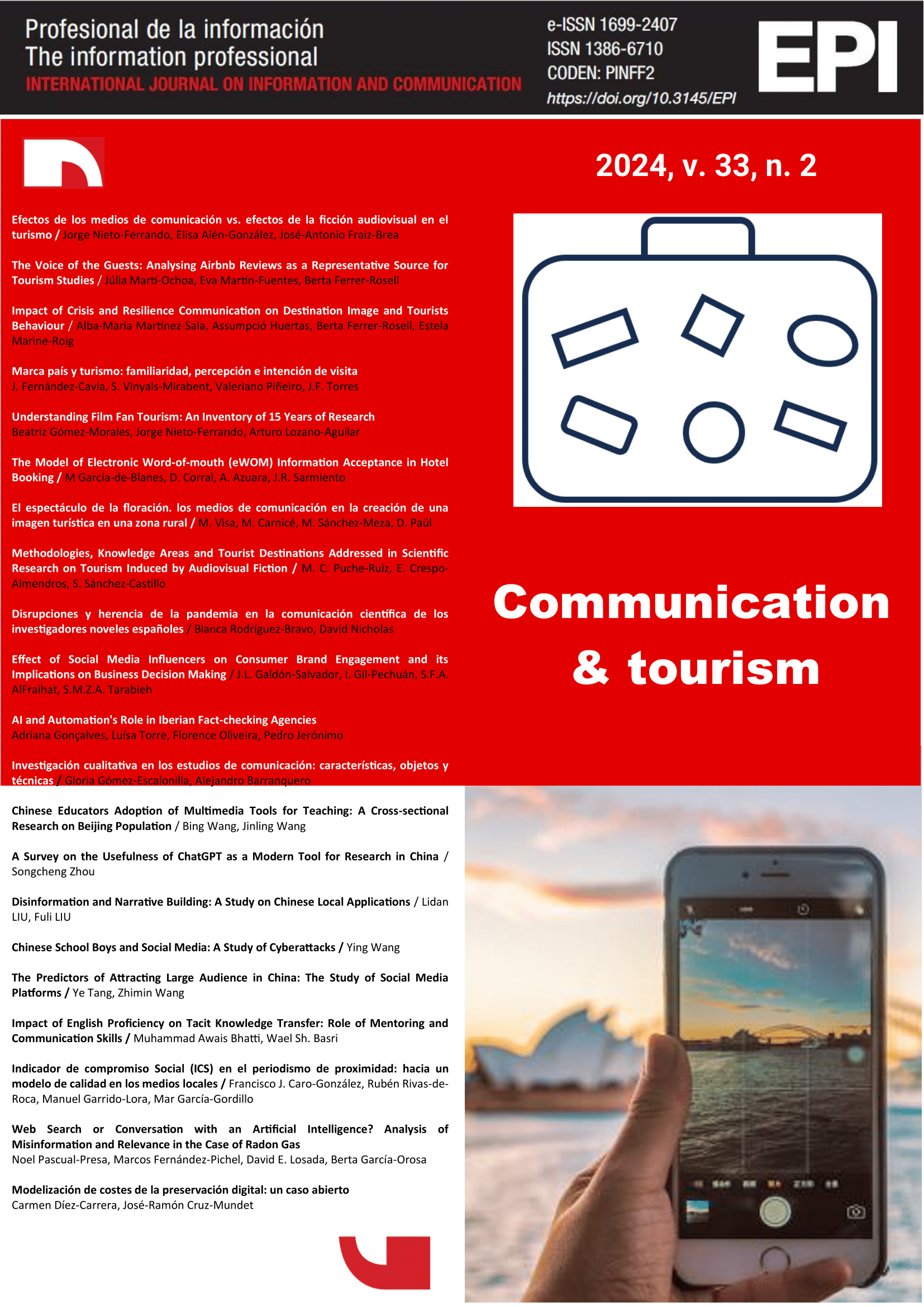Impact of English Proficiency on Tacit Knowledge Transfer: Role of Mentoring and Communication Skills
DOI:
https://doi.org/10.3145/epi.2024.0218Resumen
This study aims to investigate the relationships among English language need, mentoring culture, language acquisition,
oral communication skills, and tacit knowledge transfer in the education sector of Saudi Arabia. The objective was to
understand how communication dynamics and language proficiency influence the sharing of knowledge among
professionals in universities. The study's sample size was 248 participants, drawn from a variety of Saudi Arabian
academic institutions. The data was gathered by means of organized surveys that were modified from established
measures. To examine the hypothesised relationships, data was analysed using WarpPLS. This included confirmatory
component analysis and path analysis. There are notable associations found in the results: Improving tacit knowledge
transfer is a positive feedback loop that begins with an English language need and continues through improved language
acquisition. Organizational knowledge sharing is amplified by employees' oral communication skills and mentoring
culture, which moderate these interactions. This study reveals that knowledge transmission requires language
proficiency and supporting organisational cultures. The findings highlight the need of focused language development
and mentoring courses for organisational skills and learning settings. Improving communication and building a
conducive education organisation culture for information sharing and professional development are practical effects.
The findings can inform organisational policies and similar research.
Descargas
Downloads
Publicado
Número
Sección
License
Copyright (c) 2024 Profesional de la información

This work is licensed under a Creative Commons Attribution 4.0 International License.
Condiciones de difusión de los artículos una vez son publicados
Los autores pueden publicitar libremente sus artículos en webs, redes sociales y repositorios
Deberán respetarse sin embargo, las siguientes condiciones:
- Solo deberá hacerse pública la versión editorial. Rogamos que no se publiquen preprints, postprints o pruebas de imprenta.
- Junto con esa copia ha de incluirse una mención específica de la publicación en la que ha aparecido el texto, añadiendo además un enlace clicable a la URL: http://revista.profesionaldelainformacion.com
La revista Profesional de la información ofrece los artículos en acceso abierto con una licencia Creative Commons BY.





